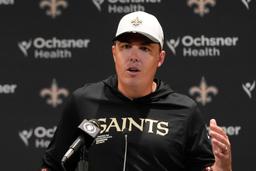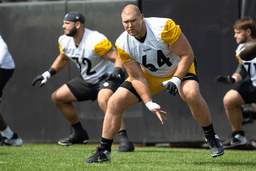The Eagles' highly anticipated OL addition is struggling badly in training camp, pushing head coach Nick Sirianni to his boiling point
The Eagles' highly anticipated OL addition is struggling badly in training camp, pushing head coach Nick Sirianni to his boiling point
When the Philadelphia Eagles signed Mekhi Becton in the offseason, many fans expected this to be a “smart gamble.” A former first-round pick, with a monstrous frame and once regarded as a “beast on the edge” – Becton arrived in Philly hoping to revive his career under OL development masters like Jeff Stoutland and the Eagles’ powerful offensive system.

However, things are going in the opposite direction.
In recent training camp practices, Mekhi Becton has repeatedly been beaten in 1v1 drills, even getting manhandled by the Eagles' backup pass rushers at times. Sloppy footwork, slow reactions, and unstable conditioning – the same issues that led the Jets to give up on him – are now reappearing in Philly.
And the worst part: Nick Sirianni has lost his temper.

According to sideline reporters, the Eagles' head coach had a rare moment of anger after witnessing Becton miss a very basic block, causing the play to collapse right from the snap. Sirianni wasn’t yelling out of hatred – but out of deep frustration, seeing a player with such immense potential showing no progress after nearly a month of camp.
“You can’t just rely on your size forever. This is the NFL – either you fight, or you get replaced. That’s it!” – a source reported Sirianni shouted during practice.
This isn’t the end for Mekhi Becton. But the clock is definitely ticking for the former first-rounder.
The Eagles have no shortage of depth on the offensive line, especially with players like Jack Driscoll and rookie Dylan McMahon making strong impressions. And if Becton can’t turn things around soon, his dream of returning to the big stage could end… right here in Philly.
The harsh truth is: in the NFL, potential means nothing if you can’t turn it into on-field performance. And right now, Mekhi Becton is heading in the wrong direction.












